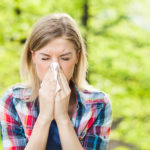What is the Hygiene Hypothesis?
A neighbor of mine says she believes in the hygiene hypothesis and that is why she doesn’t insist that her kids wash their hands before meals. She seems to be a good mother and her kids are great, but I wonder how their lack of hygiene will affect them. Your thoughts?
Andrew Weil, M.D. | November 26, 2013

The hygiene hypothesis holds that children who grow up in dirtier environments are less likely to develop allergies and asthma than youngsters raised in cleaner, more protected ones. The idea is that the developing immune system of less privileged kids is exposed to more germs and irritants from an early age and as a result, becomes better able to target “real” threats, and more protective of health. The hygiene hypothesis is a proposed explanation for why allergies and asthma are now epidemic, especially in developed countries where most kids live in relatively sanitized environments.
Recent research from the U.K.’s University of Cambridge suggests that the hygiene hypothesis may also account for higher rates of Alzheimer’s disease in industrialized countries. The investigators looked at whether “pathogen prevalence” underlies levels of variation in Alzheimer’s rates across 192 countries. They found that countries with higher levels of sanitation had higher rates of Alzheimer’s, noting that countries such as the U.K. and France, where everyone has access to clean drinking water, have nine percent higher rates of the disease than Kenya, Cambodia and other countries where less than half the population has access to clean drinking water.
The hygiene hypothesis was first proposed by epidemiologist David Strachan in a 1989 article in the British Medical Journal. He had found that kids who grow up in large families are often healthier and less prone to allergies than kids with few siblings. Then, in the late 1990s German researcher Erika Von Mutius set out to study kids growing up in poor rural or polluted areas in Germany on the theory that they would have more allergies and asthma than kids who lived in more sanitary surroundings. She found the opposite to be true, and concluded that because the immune system of children growing up in hygienic conditions had not had much exposure to germs, they were more likely to react to harmless substances such as pollen or peanuts.
The human immune system has two types of defenses. The hygiene hypothesis holds that when one defensive system isn’t challenged by bacteria and other microbes early on – because of insufficient exposure – the other system becomes too powerful and tends to over-react to harmless substances.
Over the years there have been many studies on the hygiene hypothesis, but so far, nothing conclusive has been proved. One of the latest studies, from researchers at Boston’s Brigham and Women’s Hospital (BWH), found evidence that supports it, at least in mice. The team looked at the immune system of “germ-free” mice that do not harbor bacteria or any other microbes and compared them to regular mice living in a normal environment. They reported that the germ-free mice had exaggerated inflammation of the lungs and colon, resembling findings in human cases of asthma and colitis. They also found that exposing germ-free mice to microbes during their first weeks of life (but not when they became adults) led to normal immune responsiveness and long-lasting disease protection.
Richard Blumberg, M.D., co-senior author of the study was quoted in a BWH press release as saying that the studies “show the critical importance of proper immune conditioning by microbes during the earliest periods of life” and could enable scientists “to potentially identify the microbial factors important in determining protection from allergic and autoimmune diseases later in life.”
This is a fascinating area of research. Much more must be learned before the hygiene hypothesis can make the leap from intriguing idea to fact.
Andrew Weil, M.D.









